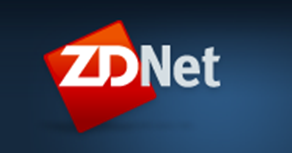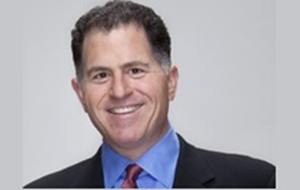
Michael Dell removed 'short-term minded shareholders' to take risks
Summary:
Guy who founded the "mail-order" PC business took the company private
because investors wouldn't let him "be bold and take risks", and the
reasons Dell went public in the first place no longer mattered.
Michael Dell was done messing around with short-term minded
shareholders when he decided to take his company private and things
have since been swell. Oh, and by the way, the PC market is alive and
well, insists the man behind the "mail-order" PC company.
"It's been great," said Dell, when asked how things had turned out for
the hardware maker since it
went private in
September last year, following a long-drawn
battle with its
shareholders. The PC business magnate was in Singapore this
week and the highlight of the Infocomm Development Authority's
Distinguished Infocomm Speaker series held Wednesday.
He explained that the company, 6 to 7 years ago, began evolving its
businesses in a significantly different way than when
he first founded
it in 1984.
|
|

"Why mess around with these
short-term minded shareholders. We're through with that."
~ Michael Dell, on taking the
company private |
"We started out as a products company, which is still important to us,
but as we worked with customers, it became increasingly clear we
needed more than products to succeed," he said. "We needed to know
about the specific businesses our customers were in and help them
solve their problems."
This required capabilities in data centers, software, security, and
services, so the company needed to invest in these areas, he noted. To
do so, however, would have been tough for then-public listed Dell.
The company went public in 1988 and during the following 25 years, its
stock climbed 13,500 percent and yielded 27 times better returns among
the top 500 ICT companies. One of the attributes of public financial
markets, however, and especially so in the U.S. market, is that they
have a tendency to be "incredibly short-termed focus".
"For an entrepreneur who wants to be bold, take risks, go into new
markets, expand, and grow, this isn't a compatible situation. So I
decided to buy the company back," Dell told an audience of more than
1,000. He is currently its CEO and chairman.
The company could then do things faster, bigger, and stronger, he
said, adding that things were a lot simpler too.
He further explained that the reasons Dell went public in the first
place were no longer critical. The company was then growing at an
exponential rate and needed capital. It also wanted to gain a better
ground with customers looking to work with big public companies.
"We don't have those problems anymore," he said. "We have plenty of
capital, our balance sheet is strong, and people know who we are. So
why mess around with these short-term minded shareholders. We're
through with that."
Another challenge the company faced starting out was being called a
"mail-order company"--a label given by its competitors that, Dell
said, simply didn't understand what the company was doing. "That was
how they were trying to deposition us," he recalled, noting that the
description gave Dell a negative stigma from which the company took
great pains to break.
PC market so not dead
Asked about the
shrinking PC
market, he brushed off suggestions the market was heading
for a meltdown. "Our PC business is going up!"
He acknowledged, though, that the market is changing and very
different than what it was 20 years ago. Today, there are many form
factors including tablets, virtual PCs, high-end workstations, and
convertibles, but these do not replace the need for PCs, he said.
About 1 million PCs are sold a day, and some 1.5 billion people a day
use the PC, according to Dell. As the new devices and form factors
emerged, some mistakably believed one would replace another. "That's
like saying we have shoes and now that we have bicycles, we don’t need
to walk anymore. Or now that we have boats and plane, we don’t need to
drive anymore," he said. "There are multiple forms of transportation,
just as there are multiple forms of computing, like wearables and
cloud computing."
This enormous array of computing forms is creating huge volumes of
data as well as opportunities and challenges, for instance, around the
need to secure the information.
Dell said his company has evolved beyond its PC days, extending into
the enterprise business and services. "And we will continue to grow
that, but we think there's an important role for client business and
it's a critical part of the entire solution."
He added that some 50,000 of the company's 100,000 employee currently
support its IT services business, which include application
development, business process outsourcing, and cloud.
Dell in February announced a "very small percentage" of its employees
had left in exchange for a severance package as part of a "voluntary
separation program". The company added that the move was
among other steps toward optimizing its business, streamlining
operations, and improving efficiency.
|
© 2014
CBS Interactive. All rights reserved. |
|